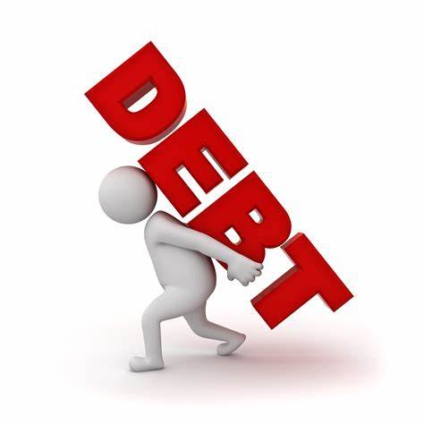Government has been urged to slow down on excessive borrowing as a precaution to reduce the country’s debt to GDP ratio.
According to the International Monetary Fund, Ghana’s debt to GDP ratio is higher than what was actually put out by the government. The nation’s debt to GDP ratio actually ended 2020 at 78% of GDP, lower than government estimate of 74.4% of GDP.
Economist, Dr. Adu Owusu Sarkodie of the Economics Department at the University of Ghana told Joy Business government should rather focus on domestic borrowing as a strategic way of managing the country’s high debt stock.
“Government must slow down with the borrowing. If anything, we should do more domestic borrowing than foreign borrowing. And with the domestic borrowing, we know we can do the cedi denominated borrowing where we can allow foreigners to bring in dollars or other foreign currencies to demand our local bonds here,” he noted.
Also, Dr. Adu Sarkodie noted that the country must intensify its mobilization of domestic resources.
“Another option is to intensify the domestic resource mobilization which I’m sure is the only viable way to go now because we cannot be borrowing at the rate that we are now. So the best way to go is domestic resource mobilization,” he added.
Over the weekend, the International Monetary Fund contradicted the government's fiscal deficit of Gross Domestic Product (GDP) claim of 11.7% achieved in 2020, as its data shows that the government financing gap was actually 16% of GDP in 2020.
Covid-19 pushes debt to GH¢286bn in 2020
Ghana’s public debt stock jumped from GH¢274.1 billion in September 2020 to GH¢286.9 billion in November 2020, according to data from Bank of Ghana’s Summary of Economic and Financial Data.
This was equivalent to $50.2 billion and represents 74.4%of Gross Domestic Product (total value of goods and services produced in an economy within a period).
According to the data, between October and November, the nation added ¢12.8 billion to its total public debt stock.
This was largely from covid-19 expenditure in a form of stimulus packages to households and businesses.
Latest Stories
-
Inlaks strengthens leadership team with key appointments to drive growth across sub-Saharan Africa
27 minutes -
Green Financing: What Ghana’s Eco-startups need to know
32 minutes -
CHAN Qualifiers: Amoah confident of beating Nigeria
32 minutes -
Governments deprioritising health spending – WHO
39 minutes -
Lordina Foundation brings Christmas joy to orphans
40 minutes -
Yvonne Chaka Chaka to headline ‘The African Festival’ this December
40 minutes -
Nigerian man promised pardon after 10 years on death row for stealing hens
43 minutes -
MGA Foundation deepens support for Potter’s Village
1 hour -
Galamsey: One dead, 3 injured as pit collapses at Nkonteng
2 hours -
Man, 54, charged for beating wife to death with iron rod
2 hours -
MedDropBox donates to UG Medical Centre
2 hours -
Afenyo-Markin urges patience for incoming government
2 hours -
Case challenging Anti-LGBTQ bill constitutionally was premature – Foh Amoaning
2 hours -
Fifi Kwetey: An unstoppable political maestro of our time
2 hours -
Volta Regional ECG Manager assures residents of a bright Christmas
2 hours

